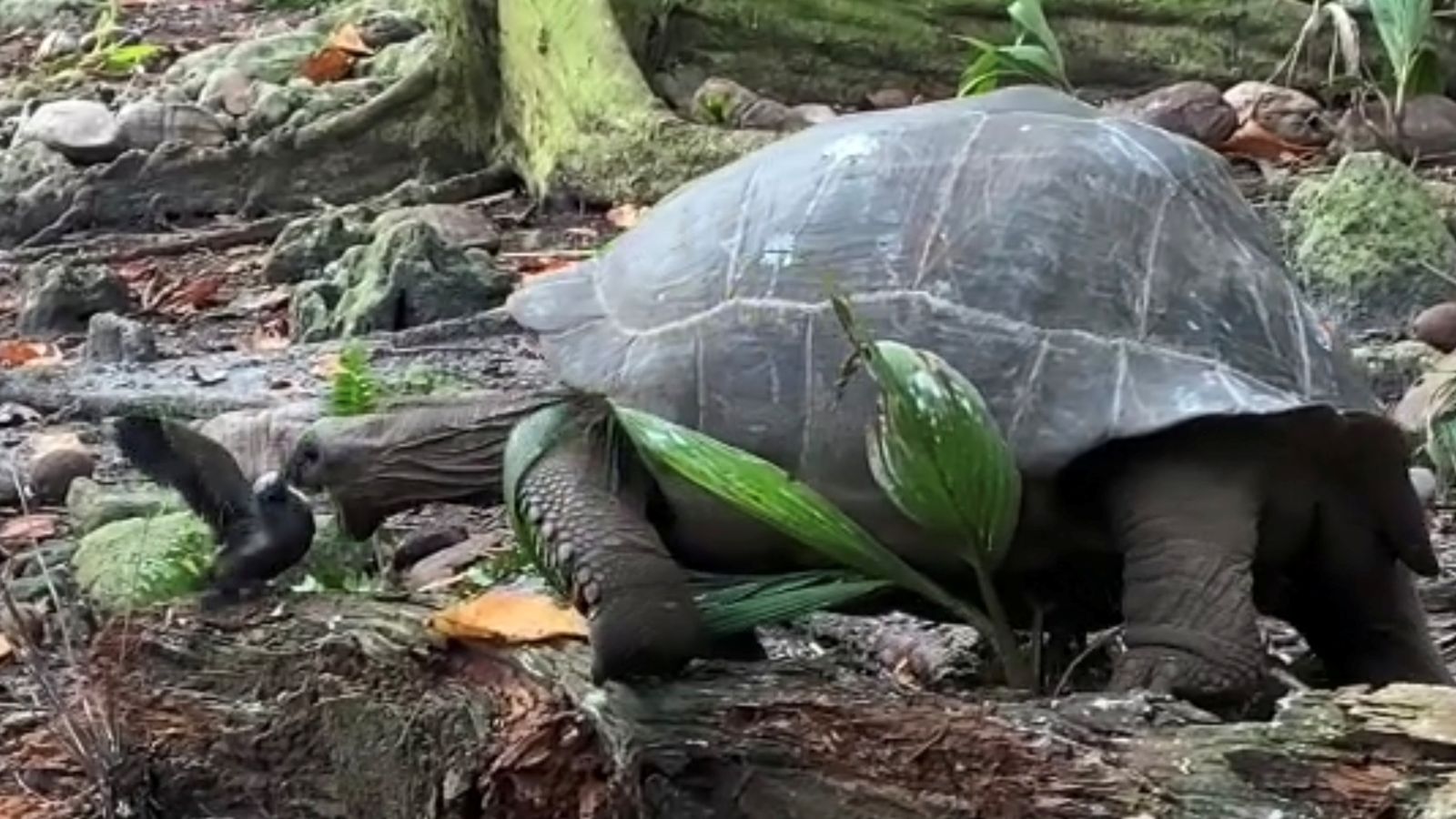Pictures of a Seychelles giant tortoise launching a “horrifying” attack on a tern chick is the first documentation of such deliberate hunting by the species, experts have said.
The behaviour by the hunting tortoise, previously thought to be vegetarian, was described as a “slow encounter” which was “unexpected”.
The female tortoise’s attack on the baby bird was seen in July 2020 on Fregate Island, a privately owned island in the Seychelles group managed for ecotourism, where around 3,000 tortoises live.
Dr Justin Gerlach, director of studies at Peterhouse, Cambridge and affiliated researcher at the University of Cambridge‘s Museum of Zoology, said: “This is completely unexpected behaviour and has never been seen before in wild tortoises.
“The giant tortoise pursued the tern chick along a log, finally killing the chick and eating it.
“It was a very slow encounter, with the tortoise moving at its normal, slow walking pace – the whole interaction took seven minutes and was quite horrifying.”
Researchers think this new hunting behaviour has been driven by the unusual combination of a tree-nesting tern colony and a resident giant tortoise population on the island.
Previously, all tortoises were thought to be vegetarian – although they have been spotted feeding opportunistically on carrion, and they eat bones and snail shells for calcium.
But no tortoise species has been seen actively pursuing prey in the wild before.
In most places, potential prey are too fast or agile to be caught by giant tortoises.
However, the researchers say that the way the tortoise, Aldabrachelys gigantea, approached the chick on the log suggests this type of interaction happens frequently.
Dr Gerlach said: “These days, Fregate island’s combination of tree-nesting terns and giant tortoise populations is unusual.
“But our observation highlights that when ecosystems are restored, totally unexpected interactions between species may appear – things that probably happened commonly in the past but we’ve never seen before.”
The interaction was filmed by Anna Zora, conservation manager on Fregate Island and co-author of the study.
The research was published in Current Biology and was supported by Fregate Island Foundation.






















